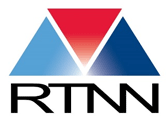February 8, 2019
@
9:00 am
–
5:00 pm
The goal for the day is to learn the basics of scanning electron microscopy (SEM) theory and SEM operation so that you can apply that knowledge to analyzing your own samples and/or understanding what SEM data means. Please note that a short course is designed to teach you how the technique works, the data that can be derived thereof, and what the generated data means. Training is designed to teach you the operational specifics of a particular instrument. Assuming that all is well you should be able to drive the Hitachi S-3200N SEM more or less independently by the end of the day. That said, it is not unusual for users to request additional training for a particular instrument.
We will start with an introduction lecture to SEM after which we will move to the lab. In the first lab, the student will observe a demonstration of SEM operation. Then each of you will drive the microscope on a standard sample and we will explore changing instrument conditions and the resulting effect on the data. During this phase, we will also learn how to focus and correct astigmatism as well as how to properly set signal gain (contrast) and offset (brightness). After a break for lunch, there will be another lecture where we learn more about electron beam-sample interactions, detectors, how to pick imaging conditions, etc. Then we will go to the lab where you can apply what you have learned by imaging any sample you wish. You are welcome to bring a sample for this time or I can find one that is appropriate.
You should bring something to write with and on, a memory stick for the presentation and any data or other information that is electronic, and last but certainly not least, your brain. You can also bring a sample for hands-on time in the afternoon. We will take a short break for lunch, probably on the order of 30-45 minutes, so it might be smart to bring lunch with you.
This should be a relaxed and enjoyable day where you learn something fun and useful. Questions? Please contact Chuck Mooney at cbmooney@ncsu.edu. To maximize hands-on time, the class is limited to three students.
Registration costs: $50 for academic, government, and non-profit participants; $350 for industry participants
To register, add yourself to the short course through AIF’s lab management software, Mendix. Click here to watch a short video on how to register for a short course in Mendix. Select “Sign up for a Short Course.”



